By Marsha Owoicho
President Bola Ahmed Tinubu took the oath of office and in just two weeks has stirred so much that Nigerians are seeing a President determined to make an impact. It is markedly different from his predecessor who shied away from making big decisions and tended to prevaricate for so long, even on minor issues. It is still early days, but he has proven that he can take the big decisions and confront the problems that plague the country.
The engagements and discussions that the President has undertaken in the last two weeks has been with a diverse group of Nigerians, from members of his party, All Progressives Congress to opposition parties and other stakeholders like the business community, traditional rulers and the diplomatic community in what seems like a concerted effort at building consensus around his agenda.
Soon after he announced the end of the petrol subsidy regime, the president met with stakeholders, including fuel marketers to avail them of the reasons for and opportunity in his decision. The reception has been stunning, even from Labour, which initially threatened to strike and shut down the country. They, too, have keyed into Tinubu’s decisions.
As the president put it after the meeting: “At a meeting yesterday with representatives of major oil marketers’ associations, in the course of the discussions, I emphasized my administration’s total commitment to a competitive, stable and transparent oil market and challenged the marketers to work with the government to ensure regular supply and convenient access to fuel products across the country at the lowest possible price.”
The meeting with opposition lawmakers was even more enthralling as a Labour Party representative-elect gushed after the encounter. Not minding what his party would say, LP member from Abia State, Godwin Ogar, described president Bola Tinubu as an intelligent, well-prepared leader after the meeting. In his words, he felt so proud “listening to a man who is prepared to serve Nigerians.” Ogar was elected as member representing Isuikwuato/Umunneochi Federal Constituency of Abia State.
In his words, “Today is my best day; today I’m so happy that I’m an elected member, seeing my President talking. In fact, I never knew that this man was so intelligent.
“He is so prepared to serve this country. During my meeting with him, I saw the love, the character, the charisma, and the belief that Nigeria can be a better nation. So I’m so glad that the meeting we have today is going to take us a little bit to a more stabilised House.”
“As of now, the party is not the issue; we’re talking about building the nation,” he added.
So, how did Tinubu, of whom many had doubts that he could do the job of President or had the strength to cope with the office, become so sure-footed that Nigerians are taking another look at him? Those who know say Tinubu is following a blueprint that has been curated by some of the best brains.
Again, like it is said, it is still early days. There is a lot more to take on. The implications of the fuel price rise is the fact that business will slow down as inflation increases. Already, prices have jumped through the roof. There are security issues yet unresolved. Since his ascendancy to the Presidency, abductions, terrorism, banditry and killings have not stopped and Tinubu has not paid out his agenda here.
However, he made his intentions clear in his inauguration speech. He said:Our mission is to improve our way of life in a manner that nurtures our humanity, encourages compassion toward one another, and duly rewards our collective effort to resolve the social ills that seek to divide us.
He still has many months to go but his first two weeks have turned out to be a whirlwind of action, Nigerians don’t have 100 days to see his impact; Nigerians want it now.
A TIMELINE OF ACTION
May 29th: President Tinubu is sworn in; announces end of petrol subsidy. Same day, the DSS invaded the offices of the EFCC in Lagos and claiimed the building as theirs.
May 30th: Chaos, as petrol prices hit the roof, up to N1,000 per litre in some areas; President meets with NNPC CEO Mele Kyari and CBN Governor Godwin Emefiele. By this day, Tinubu had directed the DSS to vacate the premises and says he will not tolerate chaos in Government.
May 31st: NLC and TUC meet with representatives of the FG in Aso Rock over fuel price increase; meeting ends in deadlock. NNPC fixes new fuel prices across the country, about 200 percent increase.
June 1st: Tinubu meets service chiefs and heads of security agencies. Lays out his agenda and demands commitment and cooperation among agencies.
June 2nd: NLC declares nationwide strike for Wednesday, June 7th; FG meets with TUC
June 3rd: President appoints former governor and senator, George Akume, as the Secretary to the Government of the Federation, SGF; Speaker of the House of Representatives, Mr. Femi Gbajabiamila, as the Chief of Staff; and Senator Ibrahim Hadejia, a former deputy governor of Jigawa State, as the Deputy Chief of Staff (Chief of Staff to the VP).
June 5th: President Tinubu visits office of the National Security Adviser and the National counter terrorism centre, again demands inter-agency cooperation.
Court declares NLC strike illegal; NLC meets with FG team, calls off strike. Team shifts negotiation to June 19th. Labour lays out demands including N200,000/monthly minimum wage
June 6-9th: Tinubu meets governors, party and opposition lawmakers and partymen to buy their support for his policy moves and the preferred NASS leadership.
June 9th: President Tinubu suspends CBN Governor Godwin Emefiele and launches probe into his time in office; appoints acting CBN Governor.
THE DAYS AHEAD:
June 14th-20th: President to swear in Chief of Staff and announce more appointments
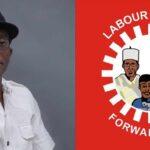
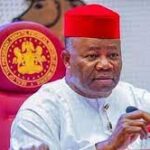

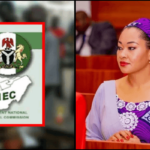
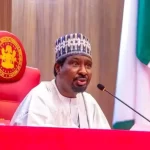
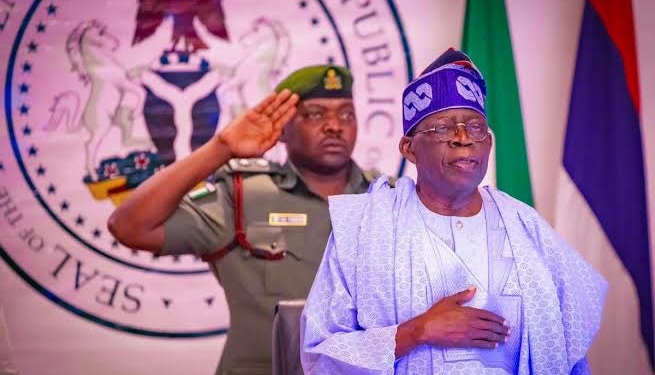
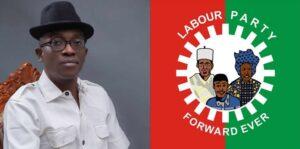
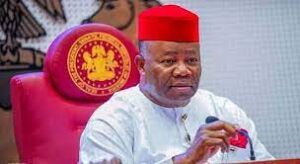
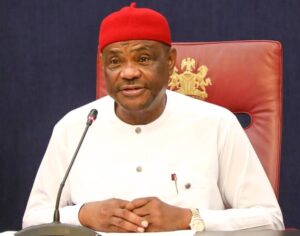
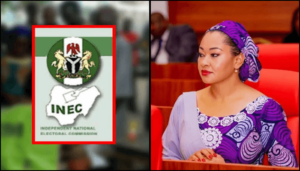
More Stories
Abure loses out as Supreme Court nullifies his recognition as Labour Party National Chairman
Akpabio secures court order banning Natasha from talking about sexual harassment allegation
Wike to critics: ‘I will live to sign condolence letters of those who said I collapsed’